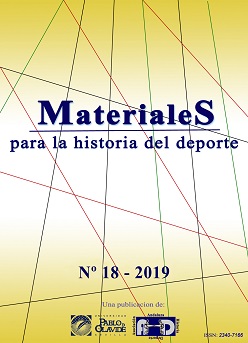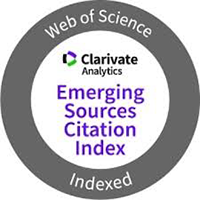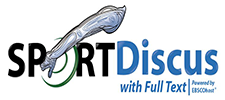Body concepts present in Iliad an Odyssey
Keywords:
Homer, body, warrior, athlete.Abstract
This article aims to analyze "Iliad" and "Odyssey" by Homer. For that, were used the versions translated in form of verse by Carlos Alberto Nunes, published by Editora Nova Fronteira in 2015. The study aimed to identify the different body conceptions present in the writings, as well as which are the most valued bodies and the most stigmatized. Therefore, the following bodies were identified and analyzed: warrior, old man, woman, slave, beggar and athlete. The investigations conclude that the body of the warrior receives a greater prestige, due to the style of life in which it was inserted, a society with constant wars. Subsequently, the body of the athlete is that reaches the level of prominence, due to the fact of having the same qualities of the warrior, but uses them with rationality. The sovereignty is imposed from the athletic clash, without there being a warlike conflict, which guarantees thesurvival.
Downloads
References
Anest, M-C. Zoophilie, homosexualité, rites de passage et initiation masculine dans la Grèce Contemporaine. Paris: L’Harmattan, 1994.
Aubreton, R. Introdução a Homero. São Paulo: Difusão Europeia do livro, 1968. Bardin L. Análise de conteúdo. Lisboa: Edições 70, 1977.
Belfiore, J. C. Dictionnaire de mythologie grecque et romaine. Paris: Larousse, 2003.
Bittencourt, R. N. A conduta dos heróis na épica de Homero. Revista Espaço Acadêmico,
Eliade, M. Mito y Realidad. Editorial Labor S.A, 1991.
Gabrecht, A. P.; Silva, G. V. Homero e o contexto de produção de Ilíada e Odisseia.
Revista Ágora, 2006.
Grimal, P. La mythologie Grecque. Paris: Presses Universitaires de France, 2003. Homero. Ilíada (em versos). Rio de Janeiro: Nova Fronteira, 2015a.
Homero. Odisseia (em versos). Rio de Janeiro: Nova Fronteira, 2015b.
Lallane, S. Une éducation grecque: rites de passage et construction des genres dans le roman grec ancien. Paris: La Découverte, 2006.
Marcondes, D. Iniciação à história da filosofia: dos pré-socráticos a Wittgenstein. 6.ed. Rio de Janeiro: Jorge Zahar, 1997.
Oliveira, R. M. O mito de Helena em Homero: a abertura figurativa. Byzantion Nea Hellás, 2008.
Pereira, M. H. R. Estudos de Cultura Clássica. Lisboa: Fundação Calouste Gulbenkian, 1997.
Reale, G. Corpo, Alma e Saúde: O Conceito de Homem de Homero a Platão. São Paulo: Ed. Paulus, 2002.
Santos, L. C. T. A Atividade Física e a construção da corporeidade na Grécia Antiga.
Revista da Educação Física/UEM, 1997.
Sartre, M. Virilidades gregas. In: Corbin, A.; Courtine, J. J.; Vigarello, G. (Org.). História da virilidade 1: a invenção da virilidade – da Antiguidade às Luzes. Rio de Janeiro: Vozes, 2013 p.17-70.
Schüler, D. Literatura Grega. Porto Alegre: Mercado Aberto, 1985.
Snell, B. A Cultura Grega e as Origens do Pensamento Europeu. São Paulo: Perspectiva, 2005.
Vernant, J-P. El individuo, la muerte y el amor en la Antigua Grecia. Barcelona: Paidós, 2001.
Viegas, A. S. A performance do belo corpo de Odisseu se mostra: De Proscrito a Príncipe. Principia, 2012.
Vigarello, G. Introdução. In: Corbin, A.; Courtine, J. J.; Vigarello, G. (Org.). História da virilidade 1: a invenção da virilidade – da Antiguidade às Luzes. Rio de Janeiro: Vozes, 2013. p. 11-16.
Wormam. N. The Body as Argument: Helen in Four Greek Texts. In: Classical Antiquity,
Downloads
Published
Issue
Section
License
Authors who submit to this journal agree to the following terms:
- Author(s) keep copyright and guarantee to the journal the right to be the first publication of the work as licensed under Creative Commons Attribution-Noncommercial-ShareAlike 4.0 International as initial publication in this journal.
- Author(s) can establish additional agreements for non-exclusive distribution of the version of the work published in the journal (for example, to an institutional archives or to publish it in a book), with an acknowledgment of its initial publication in this journal.
- It is allowed and authors are encouraged to disseminate their work electronically (e.g, in institutional open archives or on their own website) before and during the submission process, as it can lead to productive exchanges, as well as a citation earlier and more of published work (See the Effect of Open Access).












